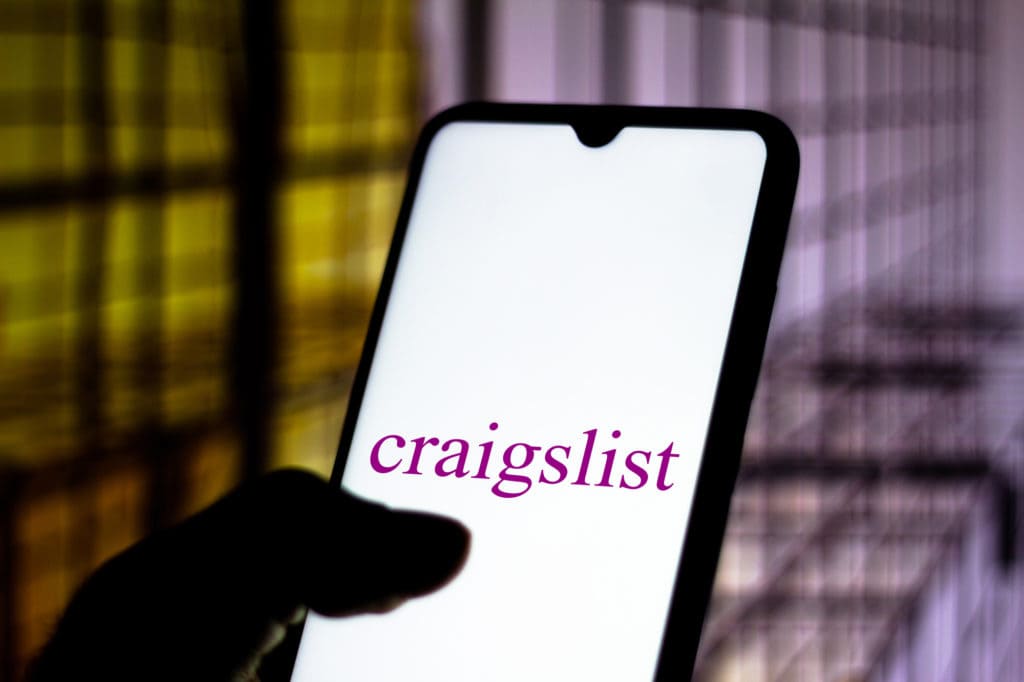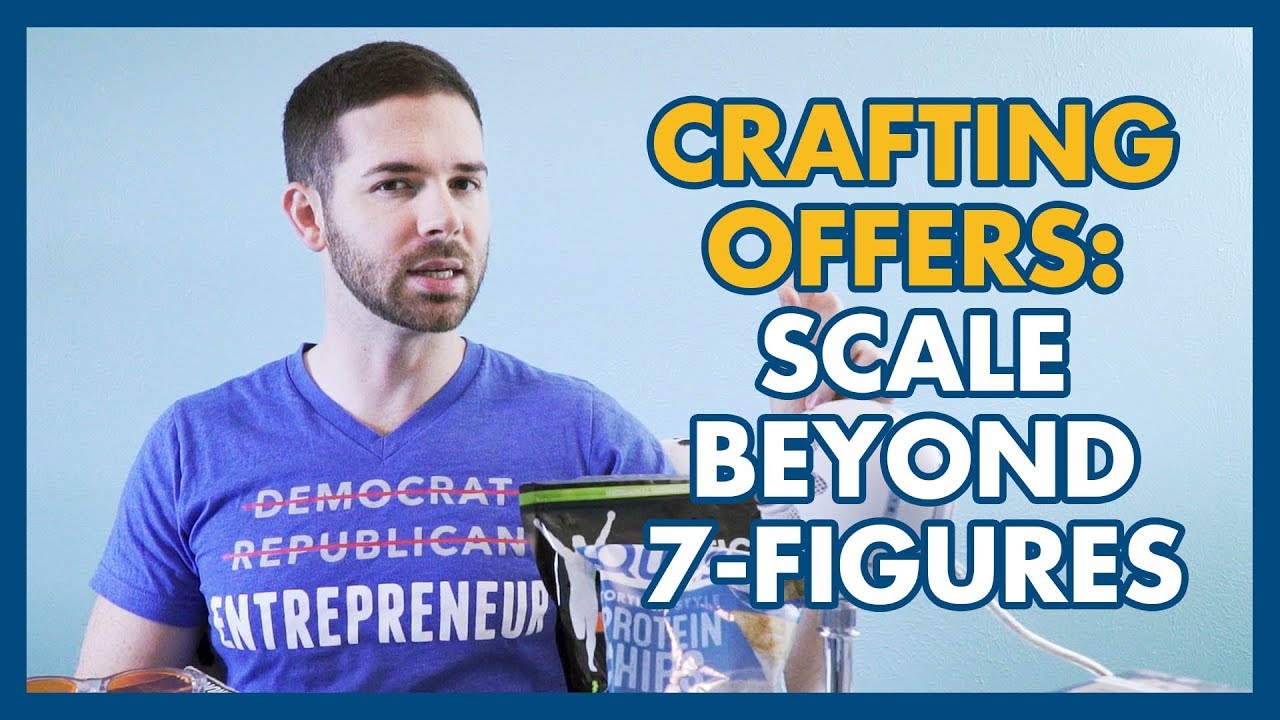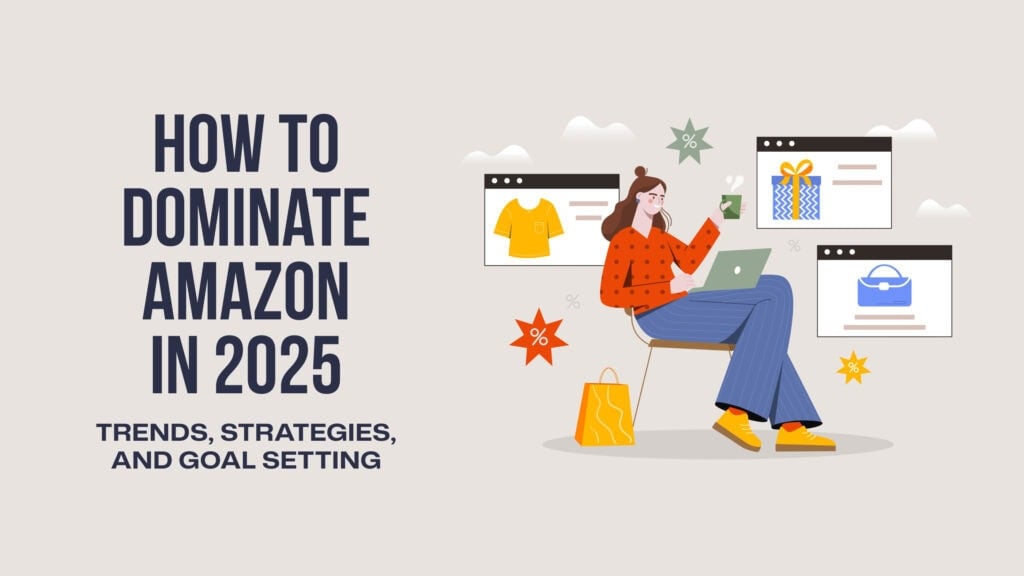Sales copy not converting? If your business isn't making the profits you envisioned when you got into this thing, you are probably right! The most profitable e-commerce business owners know that success is less about driving traffic to your product pages and more about using carefully-crafted copy to convince them to take action once they get there.
A vast majority of today's consumers are making purchase decisions with zero human interaction. They read copy. They engage. Then they buy. The words they read are paramount to the sales process.
In the words of A-List Copywriter, Justin Ford:
"Every successful business person must be able to sell through the art of the written word."
What Is Copywriting in Marketing?
It's all about using persuasive copy on your e-commerce site, including sales pages, product descriptions, and social media content, to make connections and drive conversions. No gimmicks. Not buzzwords or jargon. Not event lofty claims about your products. Your prospects are already capable of doing the research, and they know what they want. What they are looking for is value, connection, and a reason to take action.
So are you ready to do this? You may be making some mistakes with your current e-commerce copy. But it's not too late to turn it around.
Let's dive into ten powerful copywriting tips your e-commerce brand needs to increase sales conversions:
Tip #1: Know Your Audience Before Writing a Word
To engage your ideal customer with the copy you publish on your website, you must know them first. This includes understanding their problems, needs, and pain points. It's impossible to write copy that will resonate with your target audience if you don't know who they are, what they want, and why your product is relevant to them.
In an article titled "Communicate Value and Increase Conversions with These 5 Copywriting Tips," Staah suggests that you have to give prospects a reason to read and respond to your copy over every other pressing task they may have. "There must be something in it for them that helps them get away from all these distractions. Your offering must explain how it will help them. People want to know what is in it for them."
Could you use some help crafting an offer your audience can’t resist?
Showing that you understand their pain points through engaging copy is what hooks them. Only then do you earn the opportunity to share with them the benefits of taking action. Before you write a word of copy, make sure you have a crystal-clear picture of who your ideal customer is. Otherwise, you can fill your site with the most creative content, but it will fall flat.
Tip #2: Know Why You’re Different
Why should a prospect choose your brand instead of a competitor's? You cannot expect prospects to be loyal to your business unless they have a reason. Being able to identify your unique value proposition—what sets you apart from the competition—is crucial. Once you know what is special and unique about your business, you can communicate that to prospects.
You can tell people your product is "awesome" and "the best," but those are cliché words that don't have a lot of impact. Show customers precisely what makes you different. Explain how you solve their problems better. That will encourage them to act.
Tip #3: Tell Your Story
What's the story behind your e-commerce brand? Storytelling in marketing engages your prospects, draws them in, and guides them along their customer journey. It humanizes your e-commerce business. Prospects begin to feel an emotional connection to the story and the people behind the company. Your story can make a memorable impression long after visitors leave your website. It can be the difference between a prospect falling in love with your brand or ignoring it.
You are building a brand, not just selling products. So, use storytelling to create your e-commerce business's narrative. It frames why you got into the business, your company's mission, how your products can enhance the lives of your customers—all of it. Rather than using marketing jargon, you use the copy to illustrate the picture you want your prospects to envision when they think of your brand.
Seth Godin says it best in This is Marketing:
"People don't want what you make. They want what it will do for them. They want the way it will make them feel."
Focus the story on the customer and what they will be able to achieve and experience once they connect with your brand. Through the copywriting, make them want to be a part of your story because it will bring value to their lives.
#4: Write Like Your Audience Speaks
Chances are, your prospects do not use industry jargon or marketing words like "unlock," "supercharge," and "unleash" in their everyday chats. They use casual, conversational language. That's precisely what you should use in your copywriting if you want to connect with them on a personal level. An experienced copywriter writes in a way that informs and persuades, using familiar, everyday words that make sense to your reader.

In "17 Tips for Great Copywriting," MarketingExamples.com shares a few specific ways to use casual language to make an impact with your e-commerce copy:
- Use shorter sentences and fewer words.
- Communicate what your brand can do for the customer, not just what's great about your brand.
- Avoid passive voice in writing, which is indirect, awkward, and less effective.
- Don't use fluff—make every word count.
Your prospective customers see e-commerce product pages from many different companies. They can tell the difference between good copy and fluffy, exaggerated copy. Strive to keep your product pages and all other content concise, easy-to-understand, authentic, and non-technical if possible. The goal is to make it compelling and easy for your prospects to latch onto your brand and purchase your products.
#5: Focus on Benefits Instead of Features
Successful e-commerce copywriters focus on benefits instead of features when they write about products and services. A benefit shows how the product improves the customer's life or solves a problem for them. A feature is a brag, a point covering what's great about the product. It is not customer-focused. Rather than listing product features, it's essential to drive home the benefits to compel your prospects to buy. Frame each of your e-commerce products to showcase how they can benefit or improve your customer's life.
#6: Go for Shorter, More Concise Sentences
Fewer commas. More periods. Your prospects must understand your copy. Short sentences get the job done more effectively than long, flowery sentences. As you look at your e-commerce website content, consider how to bring brevity and clarity to each sentence. Use words to inspire action, rather than being cute or clever. Your prospects are smart and can tell when you are using words to add fluff instead of value.
#7: Make Your Headline and First Sentence Count
The headline should capture your visitor's attention and entice them to keep reading. Lose them at the headline, and you may never see that prospect again. What makes a compelling headline? A question that addresses their need or problem is an excellent place to start. You want to pull them in and make them want to read the next line.
Likewise, the first sentence should compel them to read the next sentence. It's about enthralling the reader immediately. They should know from the headline and first sentence how your e-commerce brand will bring value to their life. Otherwise, you aren't giving them a reason to stay on your site.
#8: Write Scannable Copy
After you nail the heading and the first sentence, work to craft scannable copy that allows the reader to find what they want quickly. Think short, compact paragraphs with lots of bold headings and bullet points. Skip long, dense paragraph blocks.
Let's face it; your prospects don't have the time or interest to read a thesis on your e-commerce business. They want to get the facts, know why they should care, and then make a decision so that they can get on with their day. Go with easy-to-digest sections with clear headings. Help them find what they need while nudging them toward the call-to-action.

#9: Use Words Correctly
Writing correctly is critical in copywriting. Improper grammar or word usage mistakes can hurt your credibility and turn-off your prospects in a hurry. In the creative article, "The Inigo Montoya Guide to 27 Commonly Misused Words," Copyblogger shares some word usage mistakes that can be a buzz-kill for your e-commerce copy:
- Adverse and Averse: Adverse means harmful or unfavorable. Averse means disliking something.
- Afterwards: Afterwards isn't a word in American English. The proper usage is "afterward."
- Complement and Compliment:: Complement is something that enhances something. A compliment is a positive expression of admiration.
- Farther and Further: Farther indicates a physical distance from something. Further addresses a figurative distance, such as time.
- Insure and Ensure: Insure is correct only when you are talking about insurance coverage. Ensure means to make sure or to guarantee.
- Principal and Principle: Principal as a noun means the one in charge, like at the high school. As an adjective, it means the most important of a set. Principle means a law, fundamental truth, or code of conduct.
- Then and Than: Use then when referring to points in time. Use than in comparison sentences.
#10: Create a Sense of Urgency
Create a sense of urgency for your prospective customers. That's how you compel them to buy now instead of later. In "12 Psychology-Backed Copywriting Tips for Boosting Ecommerce Conversions," Wisepops explains:
"For urgency to work as an effective persuasion technique and sales driver, the consumer has to believe that buying now is the best option for them."
So how do you create urgency and make them believe now is the right time? Consider how Amazon does it. They implement this technique throughout their website and the sales process by revealing stock scarcity. For example, when you look at an Amazon product listing, you will see "only X left in stock." Whether that number is two or twelve, it makes the customer think they might miss out if they don't buy it now. Incorporate stock and size scarcity and limited-time offers to drive conversions. Then watch your prospects click "Buy Now" much sooner.
Frequently Asked Questions about Copywriting
Now, you may have some more general questions about copywriting and what it takes to be an effective copywriter because you're reading this. So, here are some quick answers to frequently asked questions you may also have. They'll be especially helpful if you want to hire (or become!) a copywriter.
What Exactly Does a Copywriter Do?

Whether you are thinking about becoming a copywriter or making sure any copywriter you hire for your e-commerce business is on the right track, you likely want to know what a copywriter does and the copywriting meaning. A copywriter's purpose is persuading a reader to take a specific action after reading the copy. The action might be to buy your product, inquire about your services, follow you on social media, or join your email list. The copy may appear on the e-commerce website pages and product listings or in emails and sales brochures.
Need help building your email list?
Copywriting is different from blog writing. Its entire objective is to inspire action. Blog writing aims to educate the reader, establish trust, and develop authority in an industry. Skilled copywriters craft clear and compelling copy that gets to the point quickly. It's engaging content that connects with the reader on an emotional level.
Rather than being informative, copywriting is always related to the act of selling or promoting a product, service, or brand. What is a copywriting job? Some copywriting examples include:
- Web content
- Advertising
- Product listings
- Email marketing
- Landing pages
- Lead magnets
- Video scripts
- Headlines
Whatever the type of content, copywriters know how to brainstorm and write to promote your brand and drive sales.
How Do I Become a Copywriter?
If you feel inspired to become a copywriter, you will be happy to know there's no formal training necessary. Many of the top-paid copywriters have built successful freelance businesses without a college education or training. They usually take a copywriting course or two.
Here are the steps you can take to begin a career as a copywriter:
#1: Know what copywriting is and how to use it.
To be a successful copywriter, you must know the basics. You need to understand how to write persuasively and use words to sell. This includes learning how to write powerful headlines, value propositions, landing pages, product listings, sales emails, and advertisement copy.
Once you have a firm grasp on using words that compel customers to take action, it's not difficult to apply it to many different types of copy. However, getting good at copywriting requires studying the human psychology of consumers.
#2: Know who hires copywriters and why.
Why do companies need copywriters? Because most business owners are not experts in copywriting. If they want to sell better, they need compelling copy. Whether the company is an e-commerce business with a long list of products or a corporation, a copywriter will increase their profits by driving sales conversions. Simply put, any business that wants to make a sale needs a copywriter.
#3: Determine if you want to be a freelance copywriter or work for an agency.

If you have no experience, training, or education, becoming a freelance copywriter is your best option. With some experience or training, you could also get a copywriting job for an agency or in-house marketing team. An entry-level position can be a great way to get into copywriting for beginners. You'll gain experience before branching out to build your own freelance business.
#4: Establish yourself as a copywriter.
Keep in mind that establishing yourself as a copywriter is similar to growing a business from the ground up. It requires significant effort early on, and you will likely not get rich quickly. Success as a copywriter does not happen overnight. But when you focus on learning the craft and putting in the time to develop your skills, you can expect to build a profitable business.
In the beginning, you may need to accept some lower-paying gigs to establish your credibility. Rather than focusing on the money (or lack of money), focus on getting results with your copywriting skills. Once you can show you know what you are doing, you can charge more and amp up your business.
#5: Build a client list.
Getting clients is crucial to building your copywriting business, but it's not always easy to do. If you have connections, now is the time to use them. Perhaps you have contacts in the corporate world or have a friend who is a business owner. Tell them you can give them a great deal on copywriting for their businesses. Then, knock it out of the park. Drive conversions with your copy. Get results you can share with future client prospects. It's also a good idea to get testimonials from your first clients. Share them on your LinkedIn profile or business website to establish credibility.
If you are struggling to find a first client, you could also start small. Look for gigs on Fiverr, Craigslist, or UpWork. Will you get rich with these projects? No. But it can be a way to get your feet wet. You have to start somewhere!
What Is Good Copywriting?
Good copywriting sells. It drives sales conversions and compels prospects to take some action. Effective copywriters craft content to make people feel, think, and respond in a specific way. Furthermore, a qualified copywriter understands less is more when it comes to converting customers. They know how to use a few words to persuade and inspire prospects to move.
Other features of effective copywriting include:
- Uses storytelling
- Captures attention immediately
- Creates emotional connections
- Addresses the prospect's need or problem
- Shares benefits instead of features
- Uses language that resonates with the target audience and speaks to them in human terms
- Sells (this one bears repeating!)
Is Copywriting Hard to Learn?
For some, effective copywriting comes naturally. The craft of persuasive writing intrigues them. They want to learn the structure of powerful copy that convinces a customer to take action. They are comfortable evaluating their writing style and learning how to make adjustments to improve and grow as a copywriter.

For others, it feels like pulling teeth. Copywriting is a highly specialized skill, and it isn't for everyone. Some e-commerce business owners prefer to outsource their copywriting to an expert so they can focus on other essential business tasks. There's no shame in that.
Should I Learn Copywriting?
It depends on how much time you can devote to fine-tuning your craft. If the idea of writing your copy for your e-commerce business excites you, go for it. However, if the idea of copywriting fills you with dread, it may be best to outsource and focus your efforts on other parts of your business.
Is Copywriting in Demand?
Skilled copywriters are in high demand. Few people are willing to learn how to be a successful copywriter. But all businesses need copy to succeed. Every product you buy, you purchase because copywriters developed the brand story, the marketing message, and wrote the copy to compel you to buy.
Copy is on everything from shampoo bottles to advertisements to website pages. The demand for copywriters is here to stay as long as there are products and services to sell.
Do Copywriters Work from Home?
Doesn't everyone these days? There are three primary types of copywriting jobs:
- On-staff at a marketing firm
- Part of an in-house marketing team at a business or organization
- Freelance copywriter
If you work as a staff copywriter at an agency or for an in-house marketing team, you may have the option to work from home. Or it could be a job at the office. As a freelance copywriter, you can work from anywhere you want. Many agencies and businesses with in-house marketing teams work from home since the COVID-19 pandemic.

Can You Actually Make Money Copywriting?
Copywriting can be a lucrative career. For agency and in-house copywriters, the average copywriting salary for an entry-level position is $47K, working up to an average of $88K. The national average base pay for a freelance copywriter is $81,748 in 2020. But more than 20% of experienced freelance copywriters make six-figures.
The Take-Away
Whether you want to use copywriting to drive conversions for your e-commerce business or think about becoming a copywriter, one thing is sure. Compelling copywriting is profitable. You will be hard-pressed to find another skill that offers so much value to businesses in all industries.
We hope you found these tips for using copywriting to promote your e-commerce business brand helpful. You might also enjoy this free training series we made about starting and growing your business. Check it out to get on the fast-track to financial freedom.













